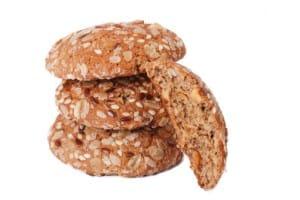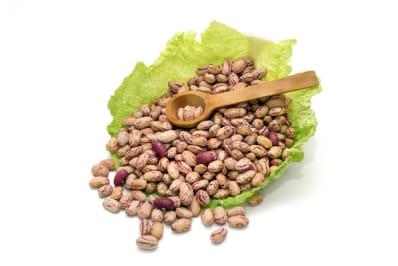
Vegetarianism and Your Child
The reasons for following a vegetarian diet are varied, and may include animal rights, health, cultural or religious beliefs, or even a desire to protect the environment. Whether you’ve always planned to raise your children vegetarian or they decide to change their diets on their own, it’s important to know how to ensure they are still able to follow a healthy diet.

First, what type of vegetarian diet will your child follow? Will they eat eggs and dairy (ovo-lacto vegetarian), just dairy (lacto), or avoid animal-derived food all together (vegan)? Your child may also choose to avoid red meat and poultry but eat fish (pescatarian), or occasionally include meat (flexitarian). No matter what diet they follow, children should grow just like a child following an omnivore, or meat and plant-based, diet as long as they get the proper balance of nutrition.
While on a vegetarian diet, it may be harder to meet some of your child’s nutrient needs. Many of the best sources of vitamin B12, calcium and vitamin D are found in animal foods, and the protein, iron and zinc found in vegetables and grains can be harder for the body to absorb than the types that are found in meat, so it is important to make these nutrients a priority. See below for recommendations to meet these nutrient needs, and make sure to choose age-appropriate versions of the following foods.
Vitamin D
- Infant formula
- Cow’s milk, fortified soymilk and other nondairy milks
- Sundried mushrooms
- Fortified orange juice
Vitamin B12
- Infant formula

- Nutritional yeast
- Meat analogues (veggie burgers, soy hot dogs)
- Fortified cereals and energy bars
- Fortified soymilk and other nondairy milks
Calcium
- Dairy products (cheese, yogurt or milk)
- Vegetables (broccoli, okra, kale, collard greens or bok choy)
- Fortified soymilk and other nondairy milks
- Fortified orange juice
- Soy products (tofu, tempeh or soybeans)
Iron
- Fortified infant formula
- Legumes (beans, chickpeas or lentils)
- Green vegetables (kale, spinach, broccoli or bok choy)

- Blackstrap molasses
- Fortified whole-grain breads and cereals
Zinc
- Legumes (beans, chickpeas or lentils)
- Dairy products (cheese, yogurt or milk)
- Fortified whole-grain breads and cereals
- Soy products (particularly fermented soy products like tempeh or miso)
- Nuts and nut butters
- Wheat germ
Protein
- Breast milk or infant formula
- Eggs
- Legumes (beans, chickpeas or lentils)
- Dairy products (cheese, yogurt or milk)
- Soy products (tofu, tempeh, soymilk or soy beans)
- Grains (rice, bread or tortillas)
- Nuts, nut butters and seeds (almonds, sunflower seeds, quinoa or peanut butter)
In addition, your child may need to take a multivitamin or supplement to meet their needs, especially if they are following a vegan diet. Consider talking with your dietitian about the best way to meet your child’s nutrition needs while following their specific diet. Make sure to speak with a dietitian or doctor if you notice any changes in your child’s growth for additional guidance and support.


